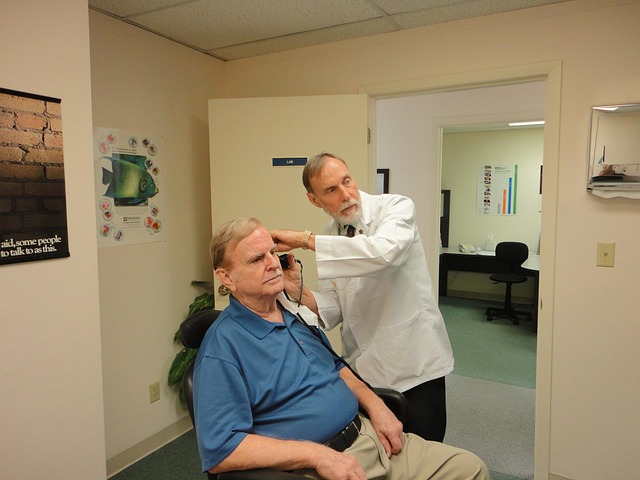
Regular hearing tests serve as a cornerstone for maintaining good health throughout one’s life. The ability to hear clearly impacts numerous aspects of everyday living, from effective communication to emotional well-being and cognitive function. As individuals age or are exposed to different levels of noise pollution, the risk of hearing loss becomes more pronounced. Consequently, understanding the significance of routine hearing assessments can facilitate proactive management of auditory health.
The Connection Between Hearing and Quality of Life
Hearing plays a central role in enhancing the quality of life. Individuals with hearing impairments often experience isolation and difficulties in social interactions, which can lead to increased feelings of loneliness and depression. Research indicates that untreated hearing loss contributes to cognitive decline, making it imperative to prioritize regular hearing evaluations. Through early detection, individuals can address hearing concerns, allowing for timely intervention. Hearing aids and other assistive devices can vastly improve communication capabilities, helping individuals maintain social connections. With the right support from a local hearing specialist, individuals can access tailored devices that enhance their auditory experiences. Addressing hearing loss promptly not only improves personal relationships but also boosts self-esteem and overall mental health.
The Role of Hearing Tests in Preventive Health Care
Hearing tests are not just for assessing existing conditions; they are invaluable for preventive care. Regular screenings can catch early signs of hearing loss before they progress. Many people remain unaware of hearing loss until it significantly impacts their lives. Routine tests can facilitate early detection, offering solutions that help preserve hearing health. Diagnostic tools like audiograms provide a comprehensive view of auditory function, allowing healthcare providers to tailor interventions effectively. In addition to preventing further deterioration, proactive hearing assessments can identify other health concerns, such as vestibular disorders that may affect balance. These conditions often correlate with hearing issues and require immediate attention. Thus, regular hearing tests contribute to a broader understanding of one’s health status, reinforcing a proactive approach to personal wellness.
The Impact of Technology on Hearing Tests
Advancements in technology have significantly reshaped the landscape of hearing assessments. Pioneering tools and methods make it easier to conduct tests efficiently and accurately. Home-based audiometric tests are now available via smartphone or computer applications. This development is instrumental in increasing accessibility to regular screenings. With an emphasis on convenience, individuals are more likely to engage with their auditory health without the barriers of time and travel. Innovative devices and software aid hearing specialists in diagnosing hearing issues with greater precision. These technologies facilitate a better understanding of individual auditory profiles, leading to more personalized treatment plans. As testing capabilities expand, the likelihood of detecting issues is dramatically improved, ensuring timely intervention.
Factors Influencing Hearing Health
A variety of factors can influence hearing health, including age, noise exposure, and lifestyle choices. Prolonged exposure to loud sounds, whether in a workplace or recreational setting, can lead to permanent hearing damage. Awareness of one’s environment and taking preventive measures, such as using ear protection, can diminish the risk of audiological complications. Nutrition also plays a key role in auditory health. Diets rich in vitamins A, C, E, and minerals such as magnesium and potassium can support hearing. Many do not realize that certain deficiencies may contribute to sounds not being properly processed. Other elements, such as the use of ototoxic medications, can further complicate hearing health. Regular consultations with a health professional can help individuals remain informed and proactive about their choices.
Myths Surrounding Hearing Loss
Common misconceptions about hearing loss can deter individuals from seeking regular assessments. One prevalent myth is that hearing loss only affects older individuals. In reality, hearing impairments can occur at any age due to various factors, including loud environments, genetics, and health conditions. Ignoring these potential warnings can lead to more severe issues down the line. Another myth is equating hearing loss solely with the need for hearing aids. While assistive technology is immensely beneficial, some preventive strategies and therapies can aid hearing preservation. Information from a knowledgeable hearing specialist can demystify these misconceptions.
Long-term Consequences of Untreated Hearing Loss
Neglecting hearing issues can lead to severe long-term repercussions. Social isolation, limited job opportunities, and cognitive decline are only a few potential outcomes of untreated hearing loss. Individuals may find it harder to engage in conversations, leading to withdrawal from social interactions and activities they once enjoyed. This isolation can, in turn, precipitate behavioral changes and mental health concerns. Longitudinal studies reveal a correlation between untreated hearing loss and increased rates of dementia. Those experiencing even mild hearing impairment face a significantly heightened risk, emphasizing the necessity of prevention and treatment. Early intervention strategies could drastically alter these outcomes, offering individuals a better quality of life as they age.

Encouraging Regular Hearing Maintenance
Creating a culture of regular hearing maintenance is essential for ongoing health. Awareness campaigns highlighting the importance of hearing tests can encourage individuals to prioritize their auditory assessments. Increased education about hearing health can empower individuals to take control of their well-being by knowing when and why to seek help. Healthcare systems also play a crucial role in promoting routine screenings. Insurance policies that cover preventive hearing tests can relieve the financial burden and increase accessibility. Creating environments that celebrate proactive health management will foster broader acceptance of hearing care within communities.
Looking ahead, the future of hearing health appears promising. With continued advancements in technology and a deeper understanding of hearing issues, individuals can look forward to enhanced audiological care. Increased research funding and innovations are allowing for new approaches and solutions to be developed, broadening the options available for hearing assessments and treatments. Improving public awareness about the importance of regular hearing tests will establish a foundation for healthier generations to come. As society continues to evolve, so too will the approaches to managing hearing health, ensuring that auditory well-being is prioritized at all ages. By understanding the significance of hearing tests and actively engaging in personal health care, individuals can protect their auditory function and improve overall quality of life. Keeping doors open for communication and social interaction allows for enriched relationships and experiences that greatly enhance daily living.





